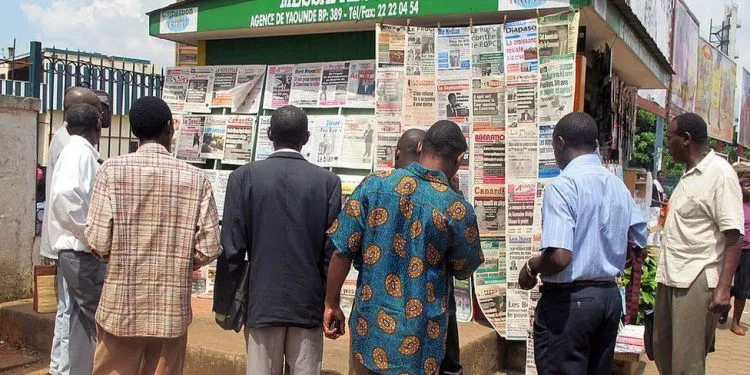The Cameroon Journalists’ Trade Union, known by its French acronym SNJC, has condemned recent sanctions imposed on several media outlets and journalists by the National Communication Council (NCC).
On August 8, 2024, the NCC suspended several media organizations and journalists for what it described as “unprofessional” practices. Others received warnings.
Those sanctioned include RIS Radio, which was suspended for six months; Première Heure newspaper, along with its Publisher and journalist Alain Balomlog, who were suspended for one month; and journalist Gnakwa Fangwa Duval of private TV station Equinoxe, who was suspended for one month for making offensive accusations.
Additionally, CAM 10 TV, its General Manager, and journalist Nkono Mobe Claudia Chimène received a warning for undisclosed reasons, as did Canal 2 International and its journalist, Ngo Bitjaga Albertine.
In a press release, Marion Obam, the President of SNJC, denounced the sanctions, describing them as a restriction on press freedom.
“The SNJC denounces these sanctions because they seek to restrict the freedom of journalists, the media, and ultimately the citizen who deserves information that is not tailored to please certain interests,” the statement reads.
The SNJC further criticized the repetitive repression of the media, noting that such actions do not contribute to improving the quality of content broadcast or adherence to ethical and professional standards.
The union also questioned the NCC’s commitment to the welfare of journalists, pointing out that the council fails to address the safety of media practitioners.
“Nothing is done to monitor journalists and media personnel who are sanctioned, some of whom are even murdered,” Obam stated.
She referenced the Munich Declaration of the Duties and Rights of Journalists, adopted in 1971, which stipulates that regulation and disciplinary actions should be managed by peer organizations composed of elected representatives from press sector unions.
It is worth noting that the media regulatory body in Cameroon operates under tight government control, with all members appointed by the regime.
The SNJC expressed concern that the NCC lacks genuine consultation and is not a self-regulatory institution legitimized by peers, which undermines its independence.



